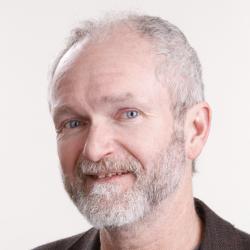40 years ago in Santiago, Chile, a military coup overthrew an elected president, Salvador Allende, with plenty of help from the U.S. government. Prominent among the tens of thousands rounded up by the Chilean government in the days following the coup was a young singer-songwriter, Victor Jara, an energetic supporter of Allende’s socialist program. Jara was tortured, his fingers broken one by one, before he was machine gunned at the National Stadium in Santiago.
I lived in Santiago several years after the coup, during a time when Pinochet’s carabineros ruled with an iron fist. Jara’s music was such a threat that to be found with a tape of his music could get you picked up and tortured. I had a cheap Takamine guitar that my friends would borrow on weekend nights. Fear was rampant and confidence earned very gradually, so it was a few months before I was allowed to join them as they gathered in a small church to play songs of freedom: the songs of Victor Jara and Violetta Parra and the powerful Mercedes Sosa (think Ella Fitzgerald singing in Spanish). It was their chance to remember what it was like to feel like free men and women. We traded songs and cigarettes, dirty jokes and camaraderie.
When I moved away, I left my cheap guitar there for the guys to continue. I don’t know whatever happened to it. I’d like to think it stayed with the group and was passed down to the next generation, the youngsters who eventually led the fight to return Chilean democracy. It’s entirely possible that they decided to sell it for food. Those were hard times for the poor, and almost everyone I knew was poor.
A week ago Bruce Springsteen closed out the Wrecking Ball 2013 tour with a concert in Santiago. He sang a Victor Jara song, “Manifiesto,” in pretty good Spanish.
He read a tribute to Jara, and the 9,000 people who attended stood up and cheered. Forty years ago if my friends had sung that song in public they would have been risking their lives. Today, the stadium where he died, not far from the venue where the E Street Band performed on Sept. 11, has a new name: the Victor Jara Stadium.
12 years after the towers collapsed and with them, our sense of this continent’s invulnerability, so many of us are still asking the same question: “Are we safe?” Whether it is on an airplane or on a marathon course or on a city street, Americans seem obsessed with how safe we are.
Which is understandable: What could possibly be wrong with safety? Everyone wants to be safe, and to know that their loved ones are safe. Safety is a gazillion-dollar industry. There are car seats for infants, alarm systems for houses, passwords for everything else, and yet it sometimes feels that we are less safe than ever. It sometimes feels like we are on a treadmill where everyone is looking for the next threat to fear.
There’s nothing wrong with thinking about our safety. It’s just that if safety is the first question, it might be the wrong question.
I submit that asking “are we safe?” is not an American way of viewing the world. It is a fearful response of an aging nation, and it won’t get us far in the 21st century. It will only take us further from our roots.
We don’t do safety. We do freedom.
When we elect officials and have them swear an oath, it is not to defend us, but to defend our Constitution—our freedom.
Safety and freedom do not have to be mutually exclusive, but for much of the past decade they have been out of balance.
If safety had been the primary concern, there would be no America. It is much safer to remain in Europe enjoying serfdom than to venture across the Atlantic in small wooden boats. If safety had been our North Star, there would have been no Underground R a i l r o a d , and worried northerners would still be urging calm and patience while African slaves tilled the soil.
If their ancestors generations ago had not jettisoned fear and boarded those ships, Tipp Hill would not today be peopled with the descendants of Irish immigrants seeking freedom from hunger and unafraid to risk their lives. Talk to survivors of Pol Pot who have made it to our town, and the obsession with security starts to seem a bit ridiculous.
Each wave of immigrants is like a refresher course on the risk that it takes to put together a free nation. This world involves risks, as 9/11 made clear. We have to decide how much fear we are willing to live with.
12 years ago my son and I watched the towers fall from the emergency room at Crouse Hospital. I had taken him there in the early hours of Sept. 11, 2001, with appendicitis. This year we gathered with our family as we do every year, to remember those who were lost on that day, including friends and one family member: Lorraine Greene Lee, my cousin.
It occurred to me that Dan was 12 at the time of the attack on the World Trade Center, and his own attack of appendicitis. “Half your life you’ve lived without an appendix,” I remarked.
“And half my life,” he replied, “we’ve been at war.”
Read Ed Griffin-Nolan’s award-winning commentary every week in the Syracuse New Times. You can reach him at [email protected]



